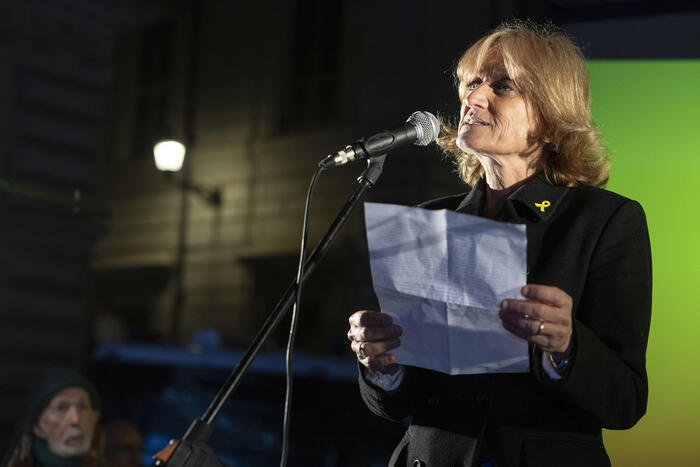At the beginning of the 20th century, Germans committed atrocities against the Herero and Nama in what is now Namibia's territory.
After years of negotiation, Germany classifies the crimes as genocide.
Berlin / Windhoek - The Federal Republic will officially recognize the atrocities committed by German colonial troops against the Herero and Nama in what is now Namibia at the beginning of the 20th century as genocide.
The descendants are to be compensated and asked for forgiveness.
After more than five years of negotiations, Germany and Namibia reached an "agreement on how to deal with the darkest chapter of our common history", as Federal Foreign Minister Heiko Maas (SPD) announced on Friday.
As a “gesture of recognition of immeasurable suffering”, Germany will pay billions in reconstruction aid.
Herero and Nama: German colonial troops committed atrocities against the population
Namibia - then German South West Africa - was a German colony from 1884 to 1915.
Between 1904 and 1908 tens of thousands of members of the Herero and Nama ethnic groups were killed by troops of the German Empire under German colonial rule.
Historians estimate that around 65,000 to 80,000 Herero and at least 10,000 out of 20,000 Nama were killed - and see the crimes as the first genocide of the 20th century.
Genocide: German government asks for forgiveness and announces financial support
Germany will support Namibia and the descendants of the victims of the genocide.
Foreign Minister Heiko Maas has announced a “substantial program worth 1.1 billion euros for reconstruction and development”.
The genocidal communities would play a crucial role in the design and implementation of the program.
Representatives of the Herero and Nama were also closely involved in the negotiation process on the Namibian side.
According to the Federal Foreign Office, the projects financed by Germany will, at the request of the Namibian side, focus on the areas of land reform, including land purchase and development, agriculture, rural infrastructure and water supply, as well as vocational training.
The projects in the Herero and Nama settlement areas, which are partially pushed to the edge, should therefore run in addition to the existing bilateral development cooperation, which is also to be continued.
Genocide against Herero and Nama: Federal President Steinmeier should ask for forgiveness in Namibia
As the dpa writes, the request for forgiveness is a core element of the joint political declaration of Germany and Namibia.
For this purpose, Federal President Frank-Walter Steinmeier is to ask for forgiveness in a solemn act in the Parliament of Namibia.
This has not yet been officially confirmed.
Foreign Minister Heiko Maas made it clear, however: "Our goal was and is to find a common path to real reconciliation in memory of the victims".
One could not draw a line under the past through the agreement.
Namibia: Genocide Recognition "Step in the Right Direction"
"Germany's recognition that genocide has been committed is the first step in the right direction," President Hage Geingob's spokesman, Alfredo Hengari, told AFP on May 28th.
In 2015, the Federal Republic of Germany and Namibia began to come to terms with the colonial crimes.
On the German side, the former CDU member of the Bundestag Ruprecht Polenz was the negotiator.
(
jjf / AFP
) * Merkur.de is an offer from IPPEN.MEDIA






/cloudfront-eu-central-1.images.arcpublishing.com/prisa/L7UV6HYZSBFUVLBENBP3VQG5QI.jpg)



/cloudfront-eu-central-1.images.arcpublishing.com/prisa/2C5HI6YHNFHDLJSBNWHOIAS2AE.jpeg)




